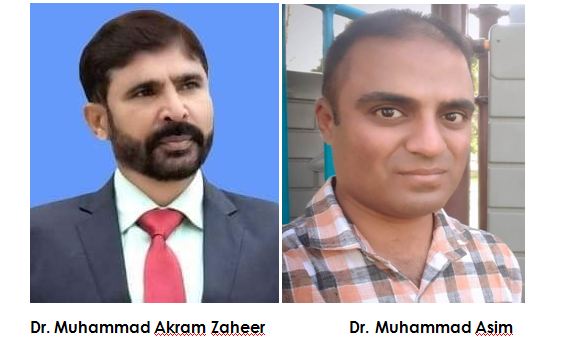Building a Progressive Pakistan through Objectives Resolution 1949 and Resistive Economics
Dr. Muhammad Akram Zaheer
Dr. Muhammad Akram Zaheer’s insightful addressed at the special session organized by the Pak-Iran Intellectual Forum in Islamabad was nothing short of extraordinary. The special session organized for the Book “A Paradigm Shift. Building a Progressive Pakistan through Objectives Resolution 1949 and Resistive Economics that demonstrated not only Dr. Muhammad Asim’s deep understanding about the historical and economic contexts but also his visionary perspective on Pakistan’s future Dr. Muhammad Asim’s eloquence and intellectual rigor captivated the audience, offering fresh and thought-provoking interpretations that underscored the significance of the Objectives Resolution of 1949 as a cornerstone for progressive development. His contributions are invaluable in fostering a deeper understanding of resistive economics and their potential to transform Pakistan into a more resilient and prosperous nation. His passion and commitment to these ideals truly inspire and resonate with the aspirations of many.
Dr. Asim should be recognized as “an academic equivalent to Ibrahim Raisi” for Pakistan, being the first to pioneer work on the concept of a resistive economy within the country. In his previous book “Romanticizing Afghanistan, Iran and Pakistan: A Region through the Lens of Resistive Economy”, he not only presented a detailed feasibility report for establishing a joint administrative market at the tri-borderland between Afghanistan, Iran and Pakistan but also meticulously assesses. Such an initiative could challenge the dominance of US unipolarity and West-inclined international financial institutions, ultimately undermining Western socio-cultural and economic hegemony. Additionally, Dr. Asim astutely highlights Afghanistan’s rational approach to seeking sustainable development since August 15, 2021, and Iran’s similar path since 1979, attributing this progress to the implementation of resistive economic mechanisms. He draws attention to the pivotal role of current Iranian President Ibrahim Raisi, who designed such mechanisms during the Iranian Cultural Revolution, leading Iran to its current sustainable stage.
Conversely, Dr. Asim underscores the detrimental impact of irrationality within Pakistan’s power nexus, particularly within the military and bureaucratic spheres, which poses a significant hurdle to the country’s socio-political and economic development. By adhering to colonial legacies and prioritizing personal interests over national and regional concerns, these sectors have perpetuated policies that align with Western interests, neglecting the broader welfare of Pakistan or US. Despite the exposure of these flawed policies, particularly evident after the ousting of Imran Khan from government, Dr. Asim asserts that entrenched practices persist. Drawing on the insights of Craig Murray, former British ambassador to Pakistan, Dr. Asim illustrates how the CIA launched a regime change operation in Pakistan with the assistance of COAS Qamar Javed Bajwa. This operation was prompted by Pakistan’s refusal to provide stations or bases to US troops post-Afghanistan withdrawal, adoption of de-dollarized barter trade through cabinet ratification on February 24, 2022, neutrality in the Russia-Ukraine conflict, adherence to Quaid-e-Azam Muhammad Ali Jinnah’s policy on Palestine, and rejection of COAS-backed US-sponsored initiatives regarding Israel and Indian-held Jammu and Kashmir.
Dr. Asim’s book precisely examines how Pakistan’s current administrative, constitutional and political system acts as a significant impediment to its political development. He highlights that while the Objectives Resolution of 1949 remains a preamble to the constitution, its principles often disregarded in the drafting process. Through a detailed analysis of this resolution, Dr. Asim reveals its alignment with the themes of the Charter of Madina and the prerequisites for implication of resistive economic mechanism(s) in any third world country like Pakistan. He advocates for the adoption of a new social contract or constitution based on these principles, presenting 12 articles derived from the 12 clauses of the Objectives Resolution. These articles, further elaborated through specific clauses, founded on the Charter of Madina, resistive economic mechanisms and 20 essential points essential for national building and socio-economic growth. In my personal judgement, Dr. Asim’s proposed constitutional draft extends beyond Pakistan’s borders, offering a transformative framework applicable to other third-world countries grappling with corruption and authoritarianism.

















